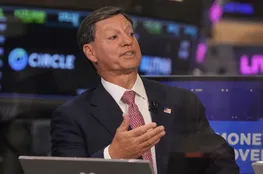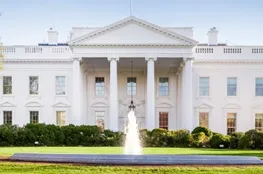Scott Bessent Defends Trump’s Economic Agenda As ‘Engine Designed To Drive Economic Growth,’ Despite GDP Contraction And Falling Approval. Treasury Secretary Scott Bessent staunchly defended President Donald Trump’s economic agenda in an op-ed published on Sunday, asserting that the administration’s policies are strategically designed to benefit ‘Main Street’ while simultaneously maintaining the strength of ‘Wall Street.’ The piece highlighted a three-step strategy aimed at rebalancing the U.S. economy, a move intended to address growing concerns surrounding economic performance. Bessent’s argument centered on the belief that the Trump administration’s approach would foster a period of unprecedented prosperity for the nation, without compromising the values held by the American workforce. The core of the strategy involved renegotiatin global trade agreements through the imposition of tariffs, a tactic aimed at protecting domestic industries and reducing reliance on foreign imports. Simultaneously, the administration intends to make the 2017 tax cuts permanent, a move that eliminates taxes on tips, overtime pay, and Social Security benefits, representing a significant shift in fiscal policy. Furthermore, Bessent advocated for aggressive deregulation to stimulate domestic manufacturing, a key component of the plan designed to encourage investment and job creation within the United States. He presented these policies as ‘interlocking parts of an engine designed to drive economic growth and domestic manufacturing,’ framing them not as isolated measures but as a cohesive strategy to propel the nation forward. This defense of the economic agenda comes amidst a complex and often contradictory economic landscape, characterized by mixed signals regarding the overall health of the American economy. While April’s jobs report delivered a positive surprise, reporting 177,000 new job positions, and inflation has shown signs of cooling with the first decline in consumer prices since the COVID-19 pandemic, Gross Domestic Product (GDP) contracted by 0.3% in the first quarter of 2025 – marking the first contraction in three years. This contraction raised significant concerns among economists and policymakers, suggesting a potential slowdown in economic growth. The situation is further complicated by President Trump’s own rhetoric, where he has distanced himself from recent market volatility, referring to it as ‘Biden’s stock market’ and attributing it to an ‘overhang’ stemming from previous administration policies, a claim that lacks substantial evidence.
Despite these challenges, support for Bessent’s outlook has emerged from prominent figures within the financial industry. Fundstrat’s Tom Lee backed Bessent’s optimistic view on market resilience, describing the recent equity rebound as a ‘White House put,’ suggesting that the market’s recovery is being influenced by supportive policies from the administration. Since bottoming out at 4,928 on April 9th, the S&P 500 – as tracked by the SPDR S&P 500 ETF Trust SPY – has climbed 15.38% to 5,686, while the tech-heavy Nasdaq 100, as tracked by Invesco QQQ Trust QQQ, surged 17.62%, rising from 17,090 to 20,102 during the same period. These gains demonstrate a degree of market confidence, despite broader economic uncertainties. However, public sentiment surrounding the administration’s economic policies remains cautious. A Reuters/Ipsos poll revealed that Trump’s economic approval rating has dropped to 37%, down from 42% following his January inauguration, with 75% of respondents expressing fears of a looming recession. This indicates a significant disconnect between the administration’s economic strategy and public perception.
Despite these concerns, the market continues to react positively, suggesting a belief in the administration’s ability to deliver on its economic promises. Ultimately, the future of the U.S. economy hinges on the successful implementation of these policies and the ability of the administration to navigate the complex challenges ahead. The ongoing debate between proponents and critics reflects the inherent risks and uncertainties associated with economic policy making, particularly during times of transition and global instability. The situation warrants careful monitoring and analysis as the nation moves forward.
























